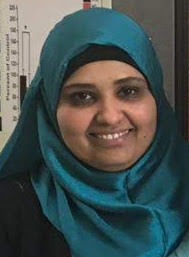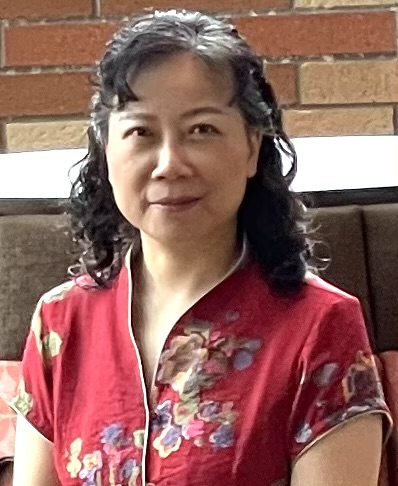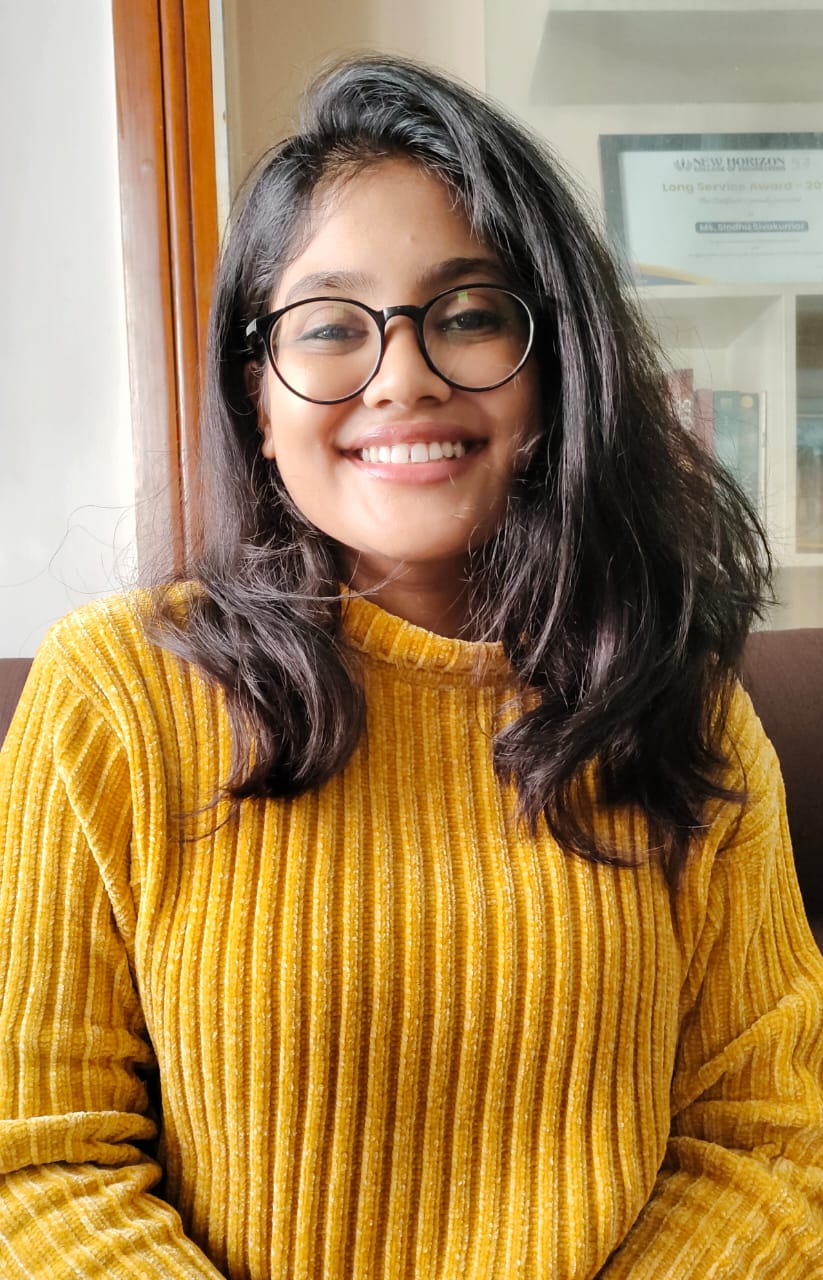
Bhadrapriya was born in a small town in Kerala, the southernmost region of India. Her family later migrated to Bangalore, a city in India. As a child, she was always interested in biology and hence completed a triple major Bachelor’s degree in Chemistry, Botany, and Zoology from CHRIST University, Bangalore in 2020. During her Bachelor’s, she attended a seminar at the Indian Institute of Sciences, Bangalore where her interest in neurosciences peaked. She got accepted into CHRIST University, India for a Master’s in Biotechnology in 2020. Under the guidance of Dr. Suma, she published 2 book chapters and a review paper during the pandemic. She received a meritorious scholarship for her grades during her Master’s. She then completed her Master’s thesis at the Rajiv Gandhi Centre for Biotechnology, India in neurosciences and secured a distinction in her final exams. She joined as a Ph.D. student at Dr. Krishnan’s lab, CMSNRC in October 2022. Outside of the lab, she is a dancer and loves reading, hiking, binge-watching TV shows, and café-hopping.
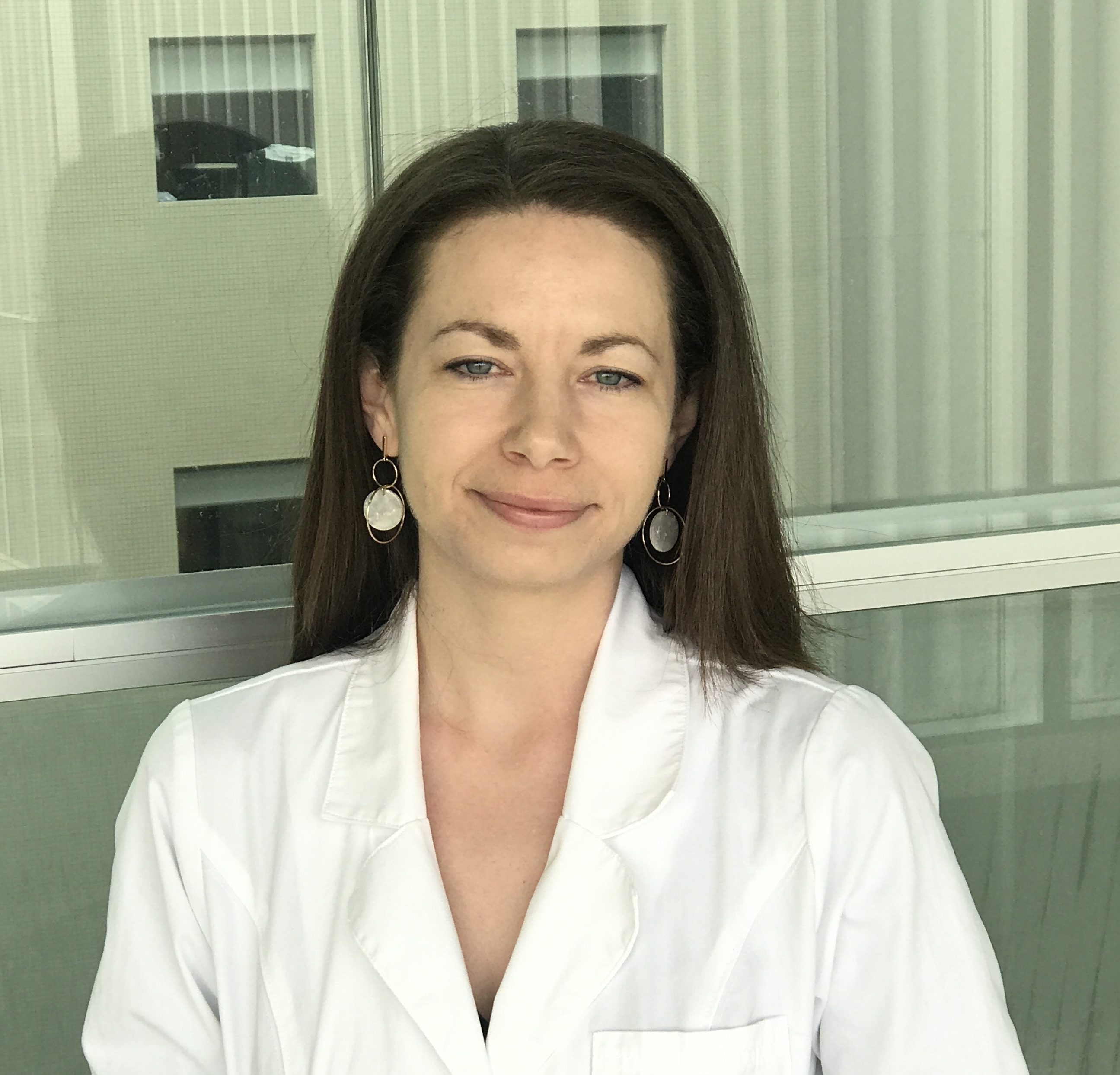
Catherine grew up on a farm near Assiniboia in southern Saskatchewan, spending most of her time outdoors where she developed a love of nature. In high school, her favourite subject was biology—especially molecular biology—so after high school she decided to attend university and study biochemistry. Upon completion of her BSc at the University of Saskatchewan, she pursued graduate studies at the Saskatoon Cancer Centre where she studied potential treatments for chronic myelogenous leukemia. After completing her MSc, she worked as a research technician in several laboratories and assisted with research projects spanning an array of disciplines, from infectious disease and immunology to neuroscience. In 2018, Catherine joined the lab of Dr. Michael Levin at the Cameco MS Neuroscience Research Centre where she assisted with research designed to help uncover the underlying mechanisms of neurodegeneration in MS. In 2021, Catherine was promoted to an administrative position within the Office of the Saskatchewan MS Clinical Research Chair as the Research Executive Assistant to Dr. Michael Levin. In her spare time, she enjoys reading, hiking, yoga and travelling.

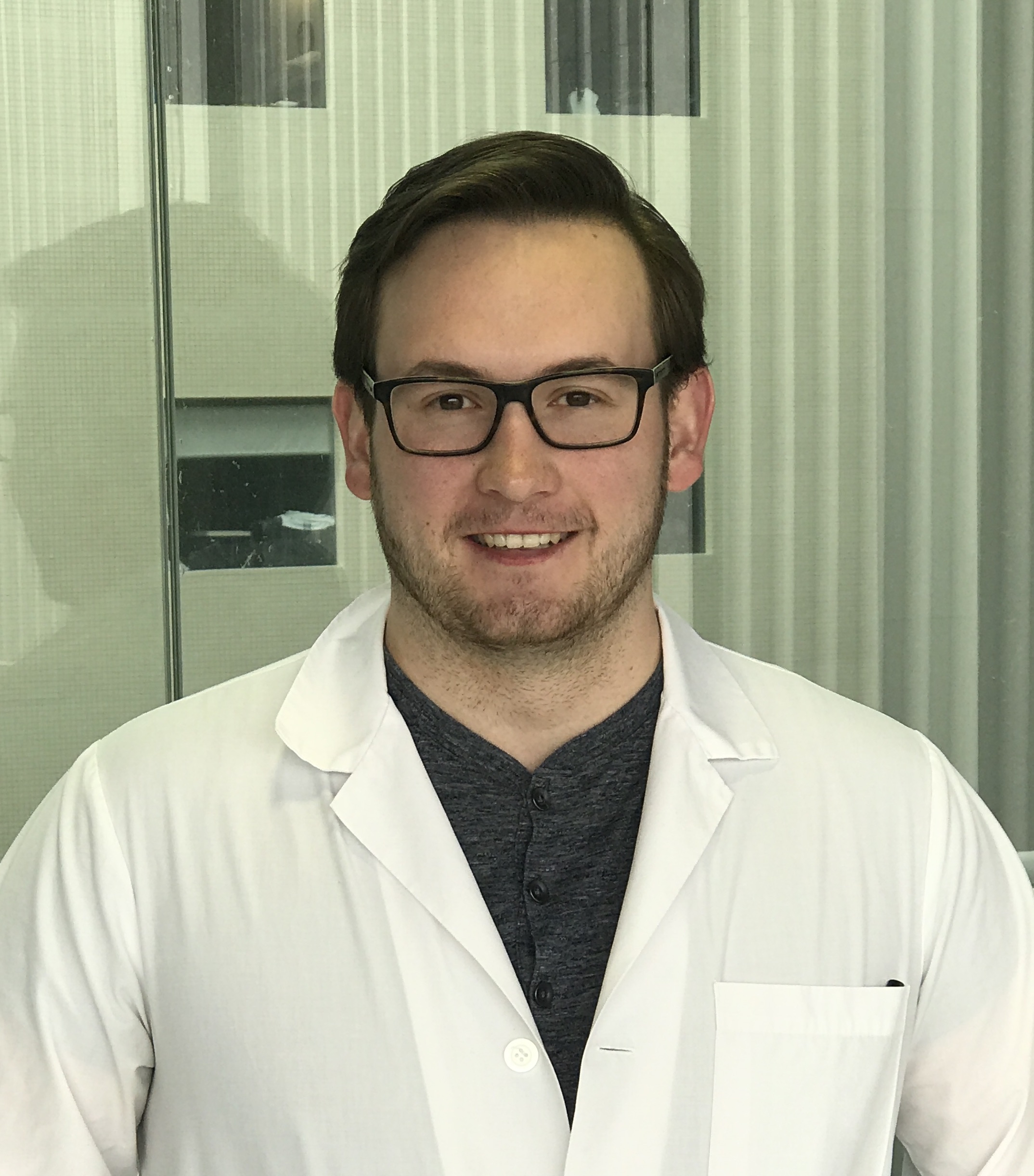
Cole was born and raised in Saskatoon where he went on to study at the University of Saskatchewan. In 2018, he graduated with great distinction receiving a Bachelor of Science degree majoring in Anatomy and Cell Biology. It was during his undergraduate studies where he found his passion for the biomedical sciences with a specific interest in neuroscience. In the summer of 2018, Cole was granted the opportunity to join Dr. Levin’s MS research team as a graduate student. Combining the high rates of MS in Saskatchewan with his interest in neuroscience made the decision to research MS an easy one. Cole's PhD project focused on how autoantibodies can cause neurodegeneration in an animal model of MS. Based on his work, Cole received the prestigious CIHR Frederick Banting and Charles Best Canada Graduate Scholarship. Outside of the lab, he enjoys travelling as well as a number of activities. In the summer, he enjoys fishing, golfing and camping while in the winter he likes to snowboard and play hockey. Cole defended his PhD in the summer of 2022 and is currently attending medical school at the University of Saskatchewan. Being a physician has always been the ultimate goal for Cole, but with his newfound knowledge, skills and passion for MS research, he hopes to peruse a new dream of being a physician-scientist.

Growing up in rural northern British Columbia where he grew up hunting and fishing, Connor was always interested in how biological systems worked. This led him to pursue a Bachelor of Science in Biochemistry and Molecular Biology at the University of Northern British Columbia (UNBC). During his undergraduate studies, he was involved in a variety of research projects ranging from phylogenetics of rainbow trout to primary human mesenchymal stem cell extracellular vesicle characterization. After graduating, he pursued a Master of Science in Biochemistry at UNBC where his thesis focused on characterizing oligodendrocyte-derived extracellular vesicles over cell differentiation. During his master’s degree, he gained a deeper fascination of multiple sclerosis and became interested in understanding the mechanisms that lead to neurodegeneration. This led him to the Levin Lab to pursue a PhD in studying MS neuropathology and the underlying mechanisms that lead to neurodegeneration. In his spare time, Connor enjoys listening to music, hanging out with his cat Momo, and is excited to explore a new city and province.
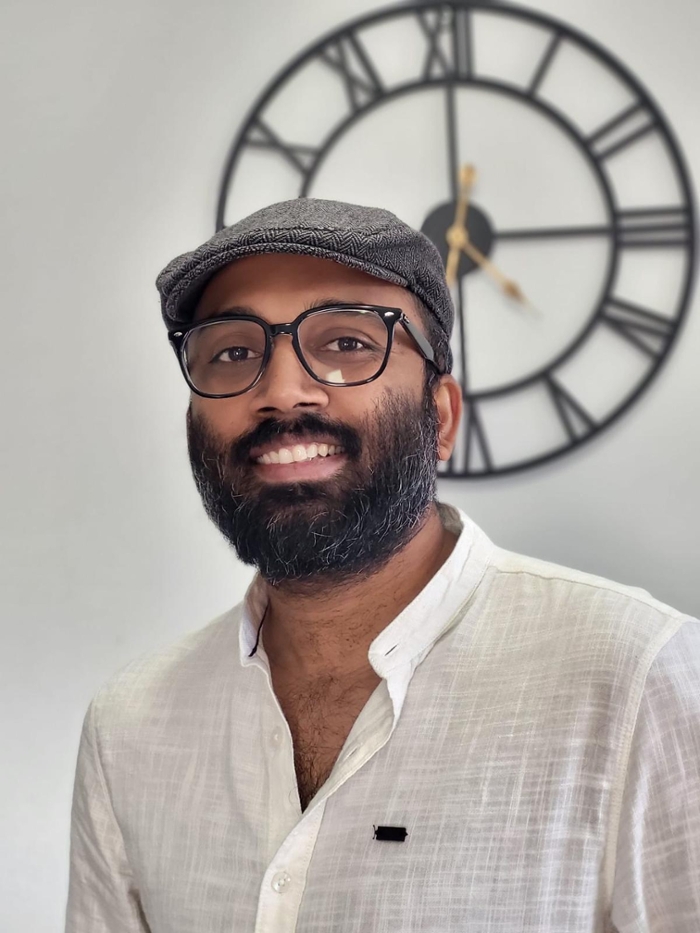
Dhananjaya D. (DD) was born and raised in Chikkamagaluru, a picturesque town nestled in the heart of the Western Ghats in southern India. His passion for research was first kindled at the Indian Institute of Science (IISc), Bangalore, and later honed through work in early drug discovery at several biotech startups and at Syngene International. He earned his Ph.D. in Molecular Medicine from Academia Sinica, Taiwan, under the mentorship of Dr. Woan-Yuh Tarn, where he investigated the molecular mechanisms of neuronal migration. He further broadened his scientific expertise during postdoctoral training at the University of Quebec at Montreal (UQAM) and the University of Calgary (UofC), working across central nervous system (CNS) and cancer therapeutics. Dhananjaya later contributed to drug discovery efforts at Enveric Biosciences Inc., focusing on the development of novel therapeutic candidates for stress-related disorders. Currently, he is a member of Dr. Levin’s lab, where he is advancing the preclinical development pipeline for next-generation therapeutics.

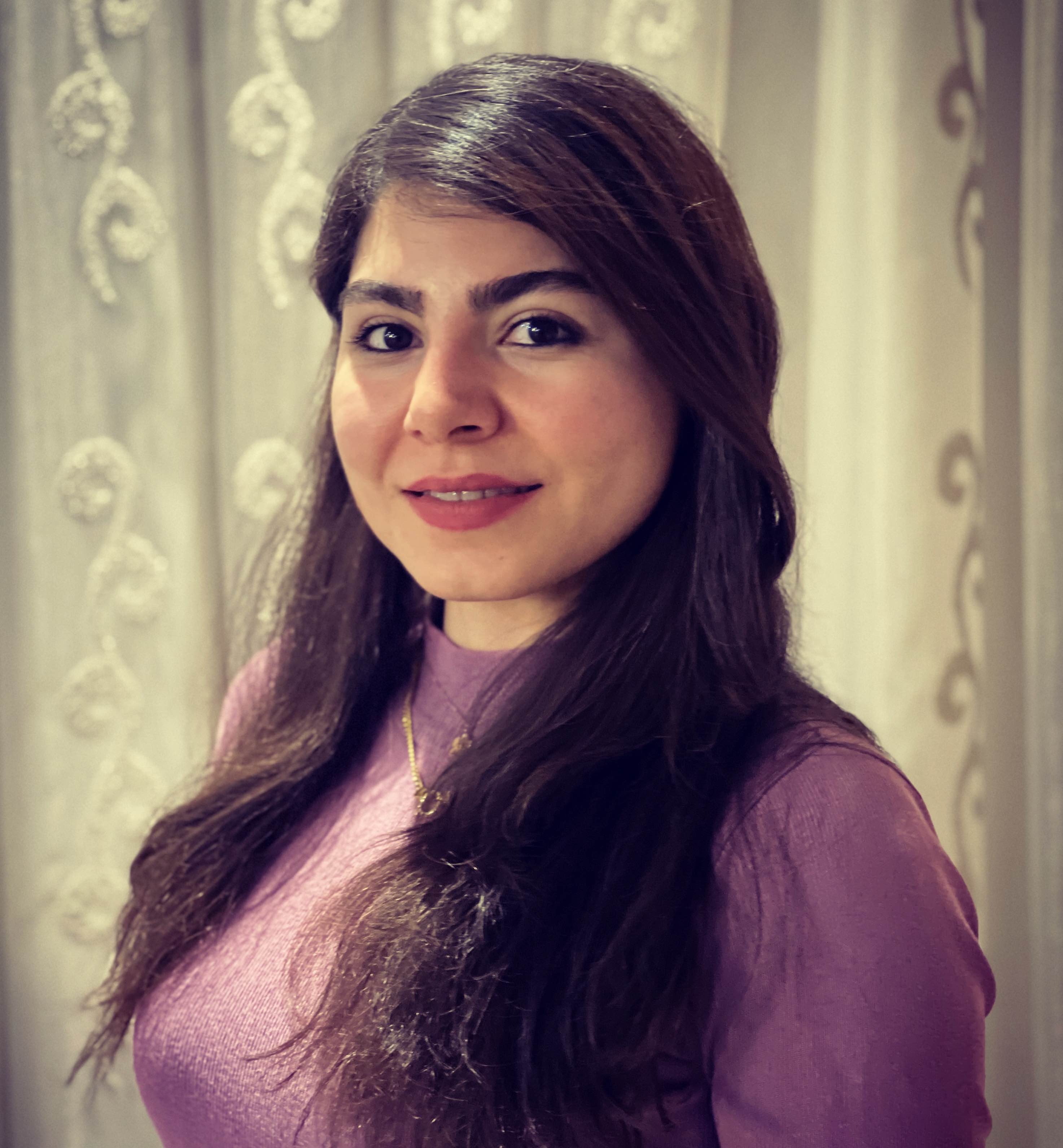
Fariba was born and raised in Karaj, which is situated near the capital city of Iran. Her interest in biology began in high school, leading her to pursue a Bachelor’s degree in Cellular and Molecular Biology, which she completed in 2011. Subsequently, she pursued a Master’s degree in Genetics, focusing on investigating the impact of miRNA on the expression of the CD1 gene in MDA-MB-231 breast cancer cell lines. The findings of her research were published in the Journal of Chemical Biology and Drug Design. After graduation, she worked in a molecular diagnostics laboratory for three years, conducting various tests to identify molecular causes of cancer and bacterial and viral diseases. Later, she worked on an industrial biopharmaceutical project as a research assistant and also worked as an R&D manager for a startup manufacturing powder media for insect and mammalian cell lines before leaving her home country. She has always been enthusiastic about exploring new academic and scientific opportunities and counts herself lucky to have found the Levin Lab's website. She became interested in this particular field after reading their articles and researching MS. As a result, she decided to start her Master's degree in September 2023 in Dr. Levin's research lab. In her free time, she enjoys reading, cooking, traveling, and listening to podcasts and music.
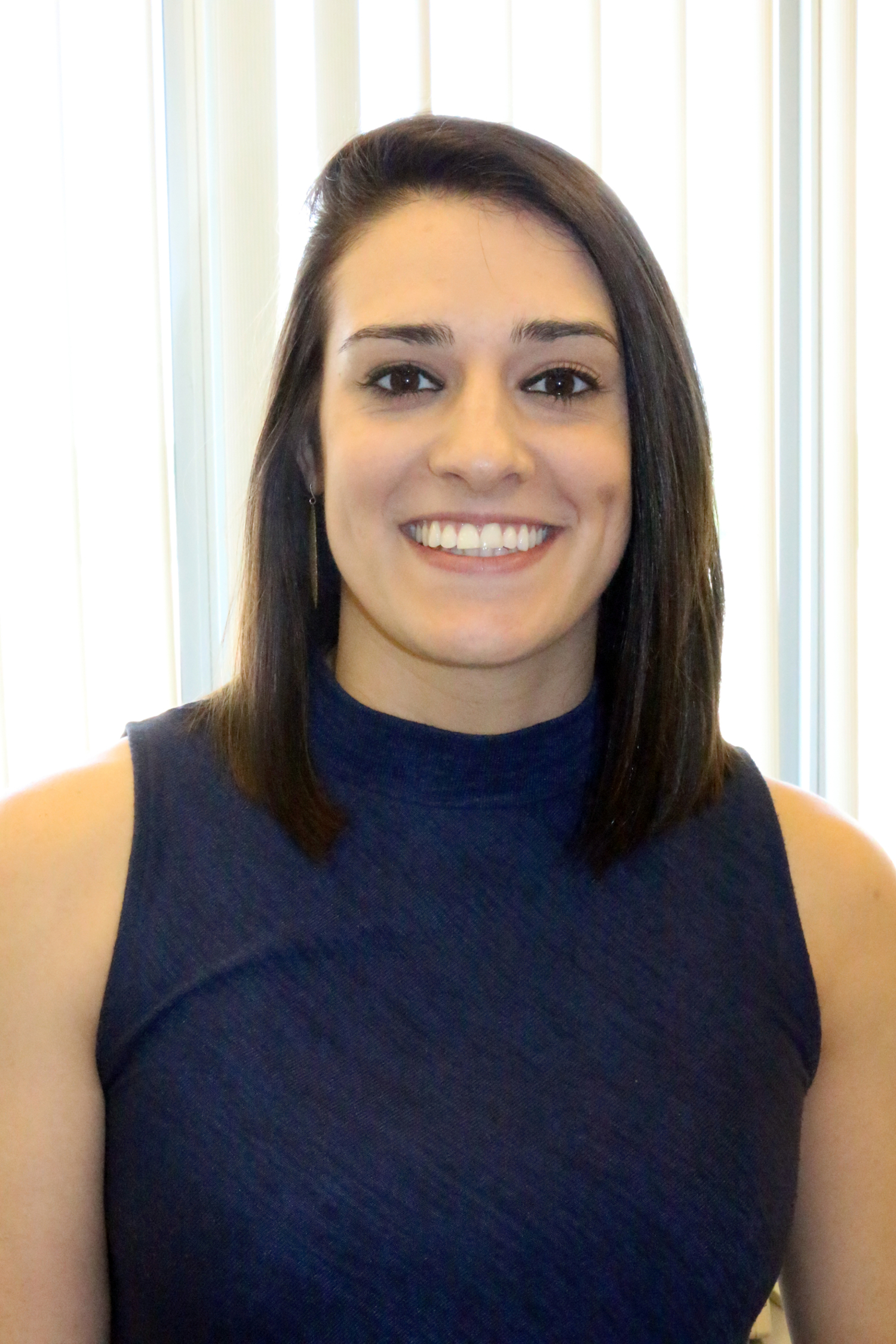
Hannah was born in Pennsylvania where she completed her Bachelor of Science in psychobiology at Lebanon Valley College. During her undergraduate career, Hannah performed research in biochemistry and neural addiction labs, the latter of which sparked an interest in neuroscience research leading her to apply to neuroscience PhD programs. Upon being accepted to the University of Tennessee, Hannah rotated through several neurodegenerative disease research labs before having the opportunity to work with Dr. Michael Levin. She quickly took an interest in MS research and started her PhD thesis research in March 2015 in the Levin Lab. After a move to Saskatoon mid-degree, she completed her PhD in June 2019 with the support of the Dr. Walter and Mary Hader MS Research Scholarship at the University of Saskatchewan. Her thesis research on dysfunctional RNA binding proteins in MS and its models culminated in being awarded the John N. Whitaker Award for Best Overall Research at the 2019 Annual Meeting of the Consortium of MS Centers. Hannah now works as a Research Associate in the lab and whole-heartedly enjoys designing research projects and mentoring students. Outside of the lab, she likes staying active, cooking, traveling, and the beautiful Saskatchewan summers.

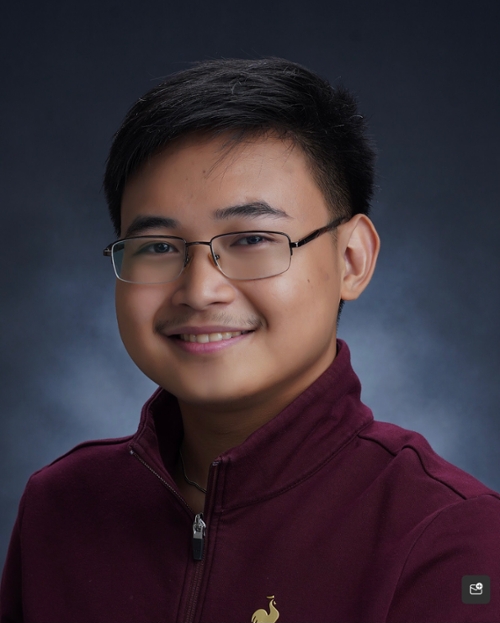
Jay was born in the city of Dasmarinas, Philippines, where he grew up in a typical extended Filipino family. From an early age, he's always had a penchant for studying the mechanics of the natural world. His passion for learning eventually led him to take Biochemistry for his undergraduate degree in 2020. During his Bachelor's, he also represented his institution in nationwide chemistry competitions serving as a team captain. His bachelor's studies deepened his fascination with the medical and physiological implications of various biochemical processes in the body. This passion led him to focus his thesis on designing compounds that takes advantage of HIV processes to inhibit HIV entry into cells. He attended numerous research conferences, participated in research colloquiums, presented his thesis in institutional and international conventions, and his findings have been submitted to the Scientific Reports journal for publication. Graduating as Valedictorian with Summa Cum Laude honours, he saw further education in research as the natural next step. In September 2024, he was lucky enough to join Dr. Levin's lab as an M.Sc. student and be given an opportunity to work with a talented group of scientists. Outside of his academic pursuits, Jay enjoys playing Badminton, watching movies and series, singing karaoke, traveling, and occasionally engaging in painting and art projects. He is particularly excited about experiencing winter sports in Saskatoon, looking forward to new and thrilling adventures.
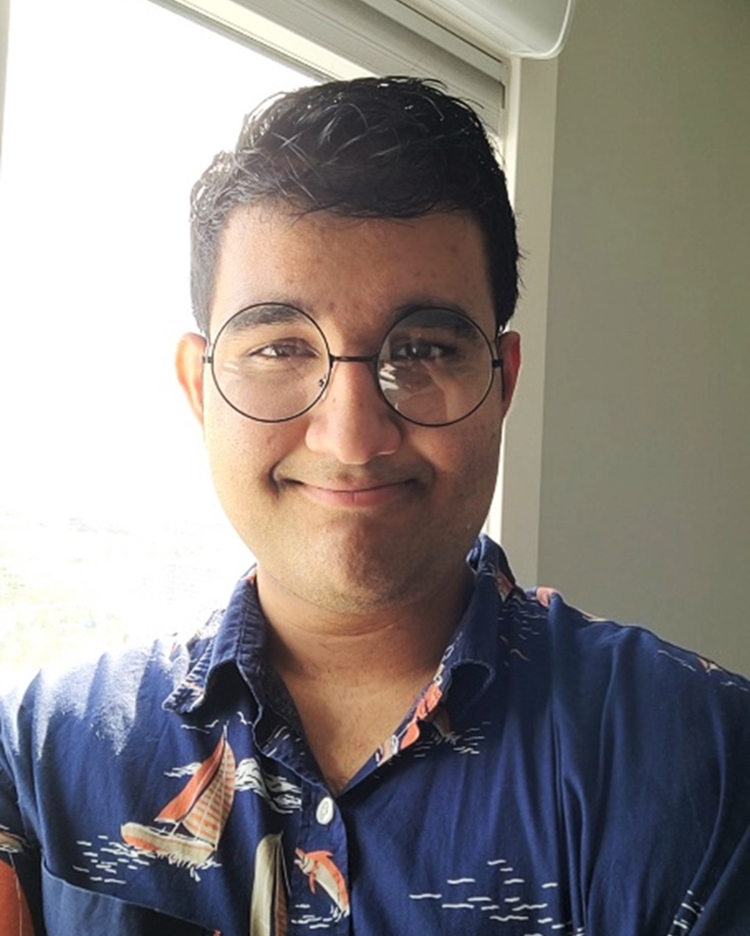
Jay is an undergraduate student pursuing a degree in Neuroscience. From a young age, Jay has been passionate about medicine, a passion inspired by his father who was a dedicated physician in India. This early interest in science and health deepened further under the influence of his elder brother, a neuroscience researcher at the University of Lethbridge. After moving to Canada, Jay has lived in Toronto, Lethbridge, and Warman, where he graduated high school with distinction, receiving the Governor General’s Academic Medal. By that time, his fascination with the brain and nervous system had solidified into a clear academic path. Jay joined Dr. Krishnan’s lab in the summer of 2024, where he began investigating how nerves interact with tumors, focusing on the molecular mechanisms through which neurotransmitters influence tumor growth. Currently, his research explores the role of neurotrophic factors in nerve regeneration, along with experimentation on chemotherapy-induced neuropathy. Jay will continue his work in the Krishnan Lab through the upcoming Fall and Winter terms as part of his honors thesis. Outside of the lab, Jay enjoys spending time with his brother, playing table tennis and badminton, and going bowling with his friends. He also has a growing interest in computer science and likes to study the integration of AI and technology in medical and research fields.

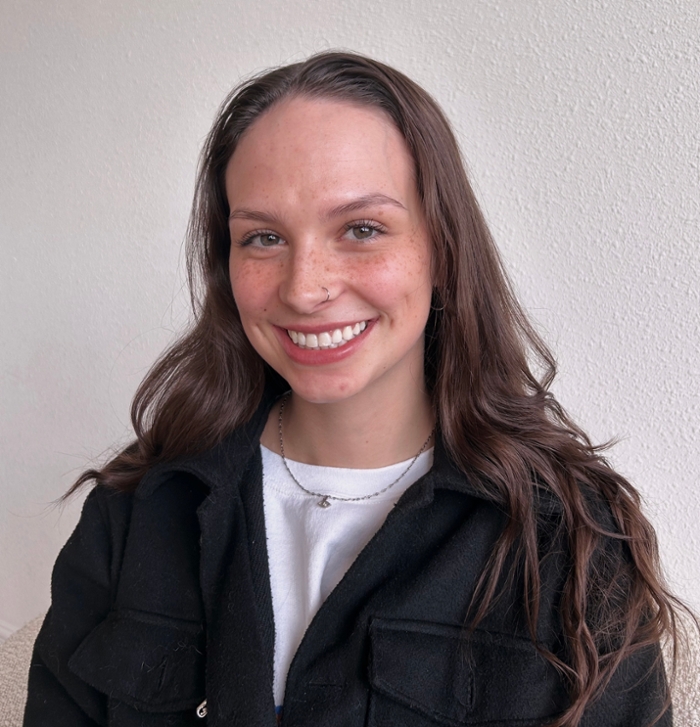
Born and raised in Saskatoon, Maya is currently pursuing a Master’s degree at the University of Saskatchewan with Dr. Verge. She is especially interested in studying nerve repair and techniques for functional neural recovery. When not in the lab, she enjoys music (especially live), spending time in the sun, thrifting, and reading.

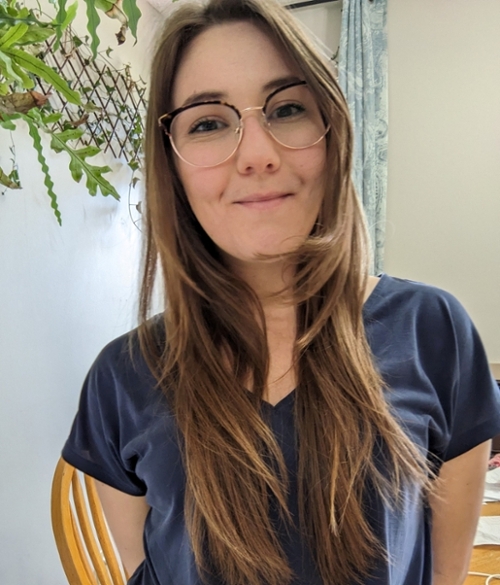
Growing up in rural Saskatchewan, Miranda was always fascinated by neuroscience but only discovered her interest in research when she came to the University of Saskatchewan. There, she started her research career in neurodegenerative disease by studying stroke and imaging brain tissue with the synchrotron at the Canadian Light Source. Her undergraduate research projects sparked her passion for neuropathology and led her to complete her Bachelor of Science in Anatomy and Cell Biology with high honours. After graduating, she worked as a research assistant for a clinical trial at the School of Rehabilitation focused on physiotherapy for people living with MS. This opportunity introduced her to MS research and led her to the Levin Lab, where she started graduate research studying MS neuropathology and the mechanisms of neurodegeneration. After her first year, she decided to expand her research project and transferred from the M.Sc. to the Ph.D. program. In her spare time, Miranda enjoys painting, dancing, and exploring something new.
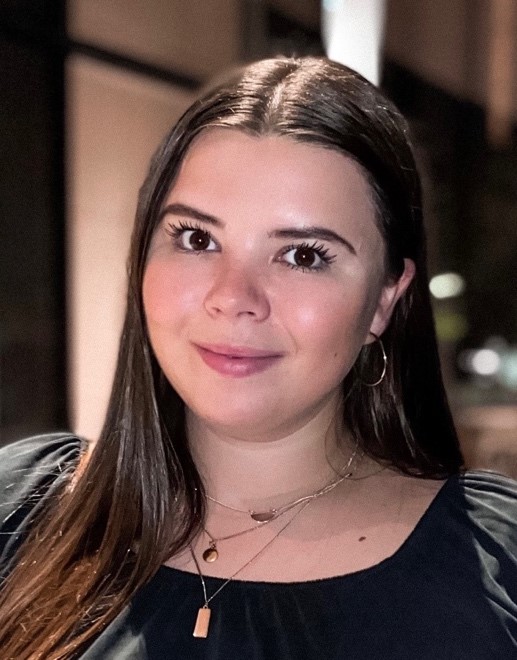
Nataliya was born in Ukraine and immigrated with her parents at a young age to Ontario, Canada. Just prior to high school, her family made a second big move across the country to Saskatoon. After being taught by an encouraging science teacher in high school, Nataliya developed an interest in biomedical science. In 2018, she graduated from the University of Saskatchewan with a Bachelor of Science Honours degree in Physiology and Pharmacology. Because of her fascination with neuroscience, she also received a minor in Psychology at that time. With the hope of continuing her studies in the field of neuroscience, Nataliya joined the Verge lab shortly after graduation. In 2020, she received her Master of Science degree in Anatomy and Cell Biology. Nataliya completed her PhD in the Verge lab continuing her Master’s work to further investigate the effects of a novel non-invasive treatment called acute intermittent hypoxia (AIH) in a mouse model of MS. In her free time, she loves camping, winter sports, baking and working on music projects with her siblings!


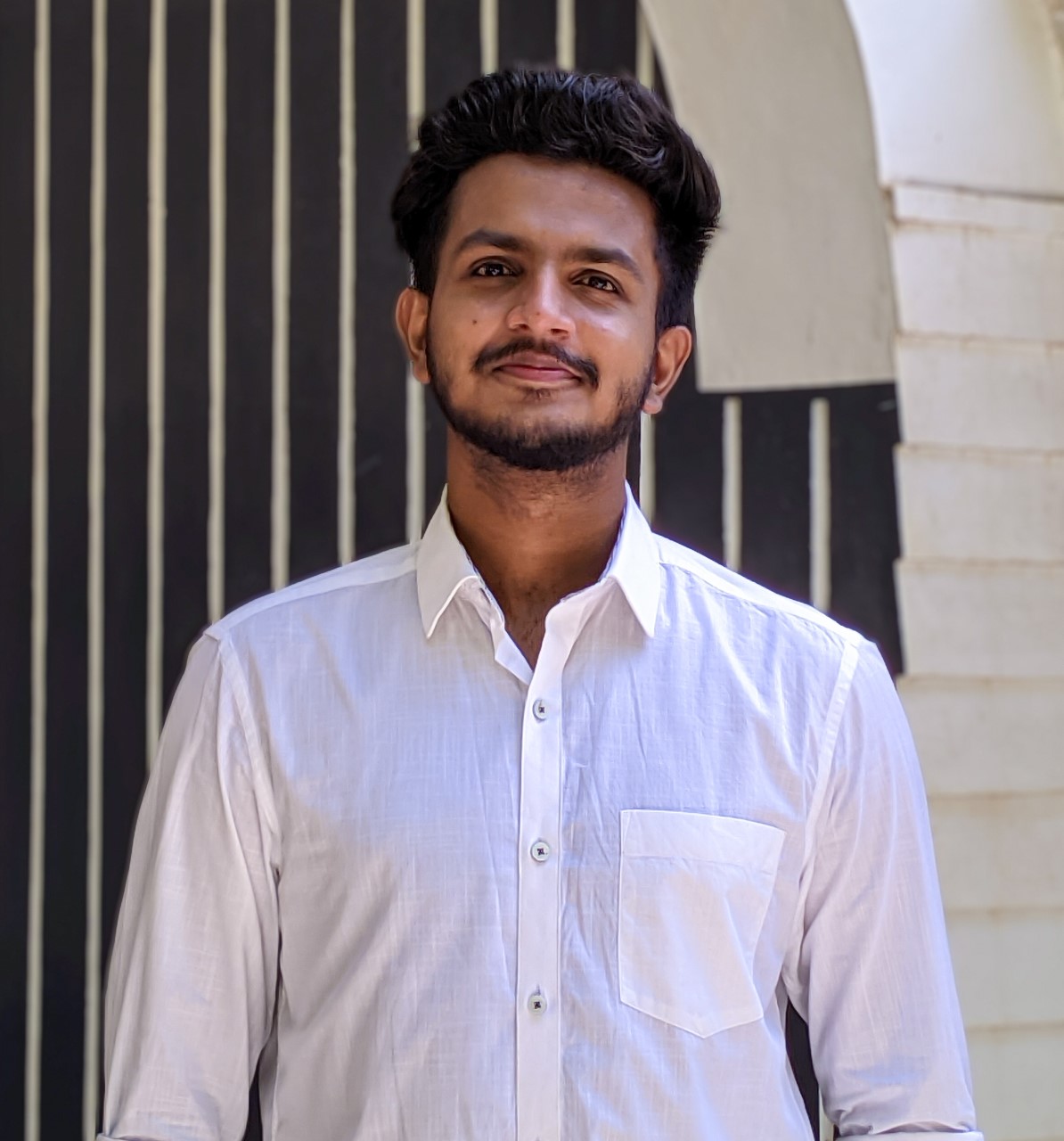
Nickson grew up in Kannur – a town popularly known as ‘The Land of Looms and Lore’, in the northern part of Kerala, India. He completed his Bachelor’s in Zoology from Sree Narayana College and his Master’s in Zoology from St. Berchmans College; both in Kerala. He is an avid reader of scientific non-fiction books and a relentless follower of crazy ideas in science. That’s how he developed a passion for neuroscience. He joined CMSNRC as a Ph.D. student in the Krishnan lab in May 2023 where he works on breast cancer nerve-tumor interface and its effects on brain metastatic recurrence of breast cancer. Brain metastatic recurrence of breast cancer is a late event and is fatal. He is trying to understand the nerve-tumor interface to explore the prognostic and therapeutic potential of the nerve-dependence of breast cancer to fight the deadly brain metastasis. Apart from academics, he is an admirer of Haruki Murakami’s works and loves reading novels. He is a proponent of scientific temper, and he loves beaches and biryani.
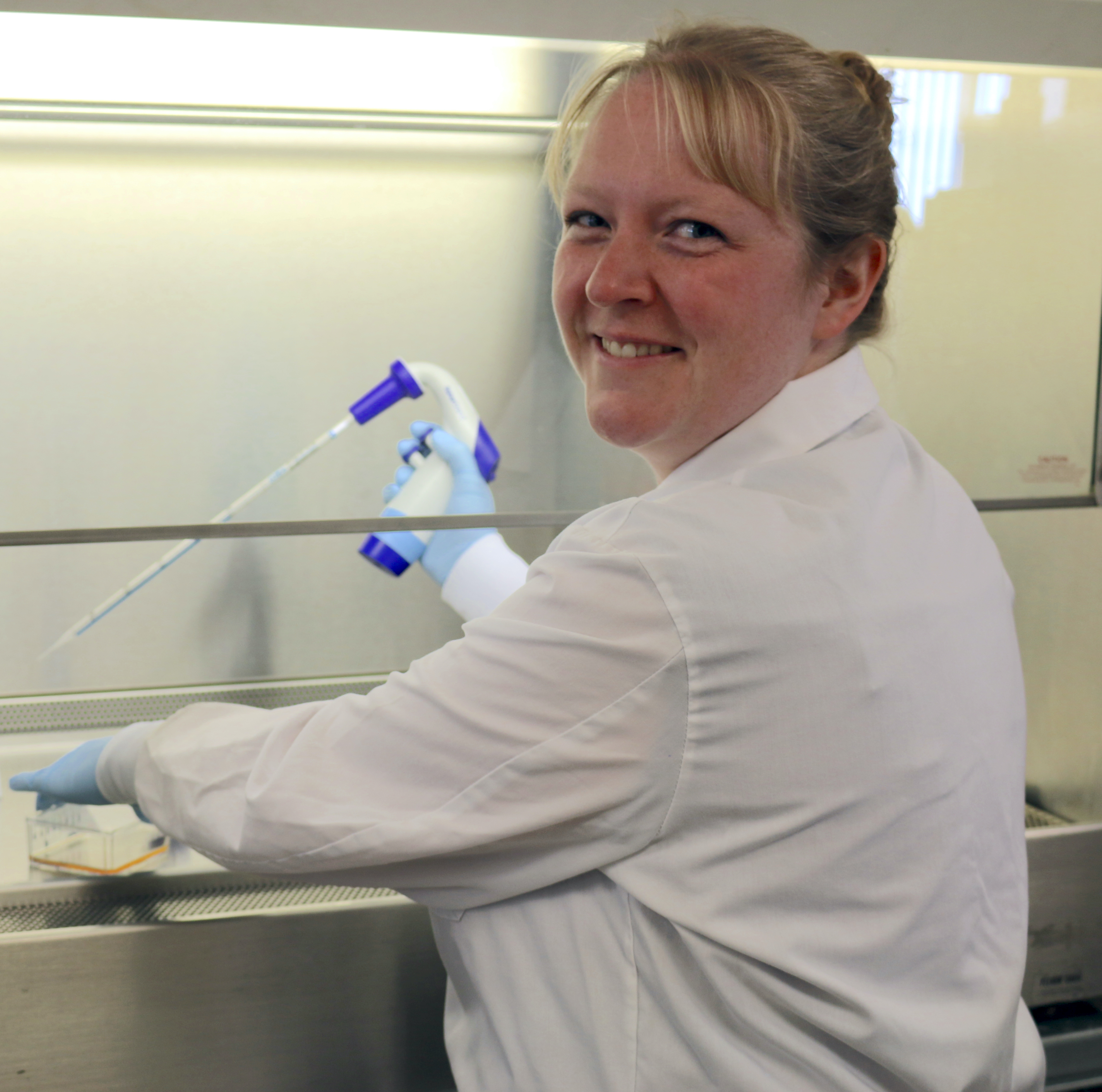
Born and raised in Saskatoon, SK, Patricia found she was a “science person” relatively early on, but got hooked on molecular biology itself during her undergraduate NSERC summer scholarships at the University of Saskatchewan. She went on to get her PhD in Microbiology and Immunology at the U of S with Dr. Joyce Wilson, studying the molecular biology of Hepatitis C virus. There, she started with an NSERC Master’s scholarship, followed by a PhD scholarship from the CanHepC research network. On the side, she gave tours to people of all ages and educations at the Canadian Light Source, Canada’s only synchrotron. Patricia furthered her virus adventures in the lab of Dr. Benhur Lee at Mount Sinai in New York City for her CIHR-funded postdoctoral fellowship, studying “all things Paramyxovirus” – a family of viruses that includes the all-too-familiar measles and mumps viruses, as well as their more lethal cousins, Nipah and Hendra viruses. Through all of Patricia's research training, she was fascinated by the intricate details of how our cells run, and all the mechanisms our cells employ to keep things from going off the rails. Multiple sclerosis (MS) is highly prevalent here in Saskatchewan and is a quintessential example of intricate and complex processes that have derailed. When she returned to Saskatoon, Patricia saw the opportunity to turn her expertise to the biology of this disease and joined the Levin Lab at the CMSNRC. Currently, she is examining how a protein found in neurons goes awry during progressive stages of MS. In addition, since virus infection is considered a likely trigger for MS onset, she is also exploring how viruses are involved in MS.
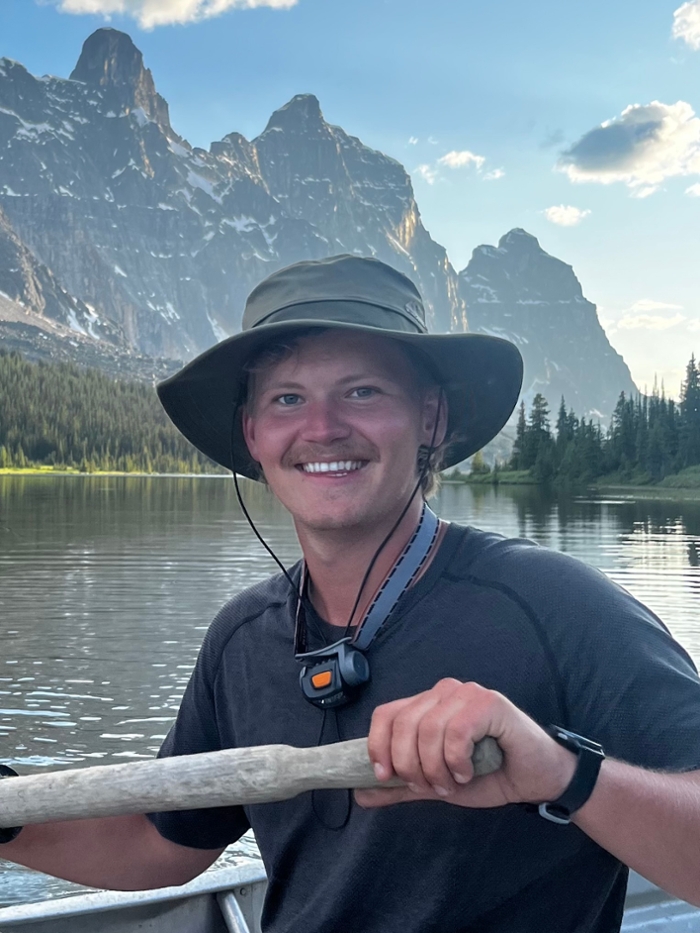
Reed grew up on an acreage near Outlook, SK. He is currently an undergraduate student completing a Bachelor of Science at the University of Saskatchewan. During his studies he has developed an interest in physiology and the changes to normal function that accompany disease. Reed was given the opportunity to join the Levin lab after receiving funding for a biomedical summer research project through the University of Saskatchewan’s College of Medicine. Outside of school, he enjoys playing the piano, hiking, sports, and spending time with family and friends.

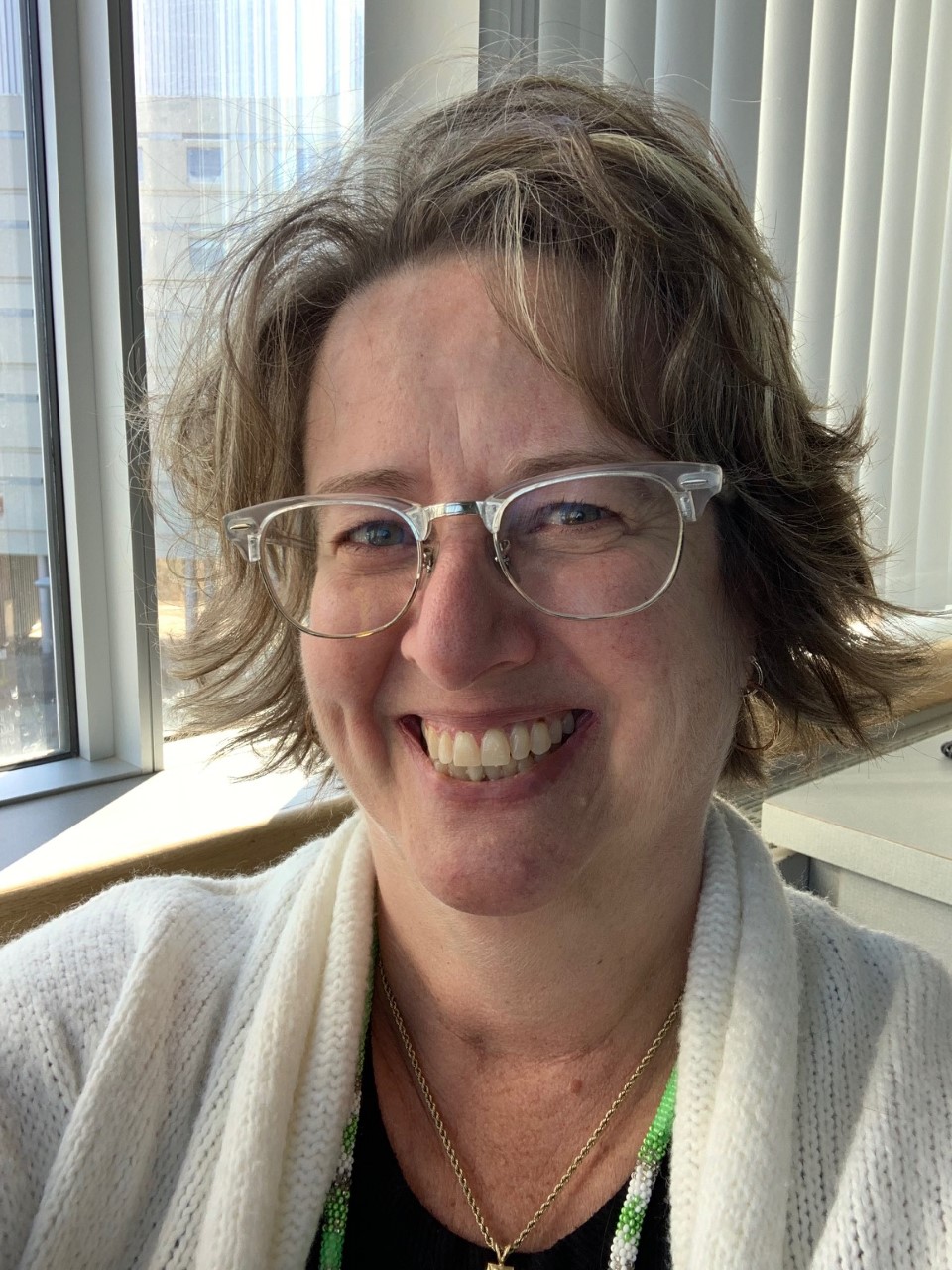
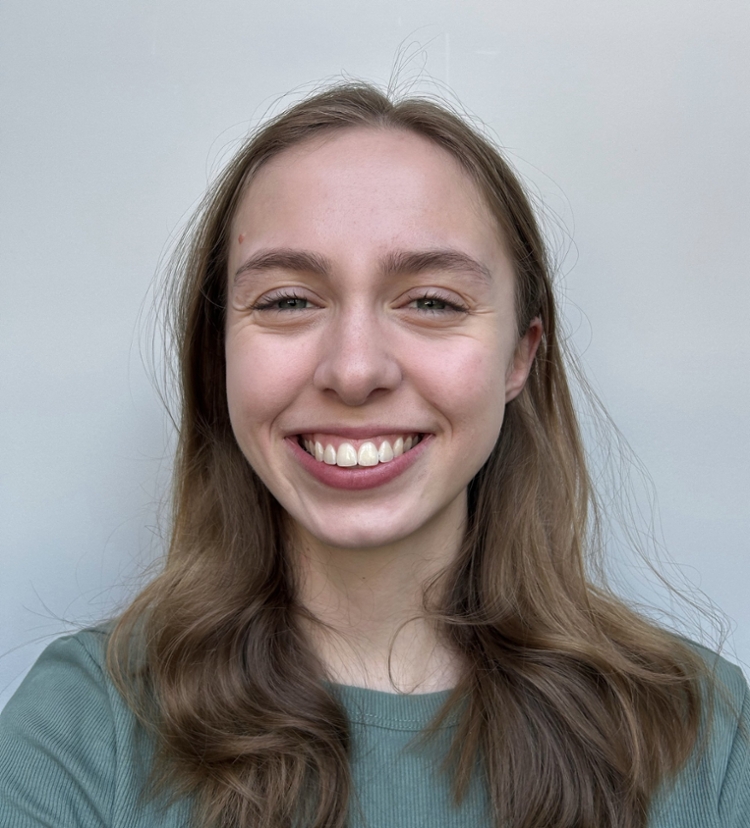
Thora was born and raised in Saskatoon, and is currently pursuing a Bachelor's degree in Cellular, Physiological, and Pharmacological Sciences (CPPS) at the University of Saskatchewan. From a young age she was passionate about science, and is interested in studying neurodegenerative disorders and their effects on quality of life. This summer, she is excited to be part of the Verge Lab, where she is completing a Biomedical Summer Research project. She also looks forward to pursuing her Honours next year. Outside of the lab, she enjoys running, playing softball, spending time with friends and family, and binge-watching a good TV series.
